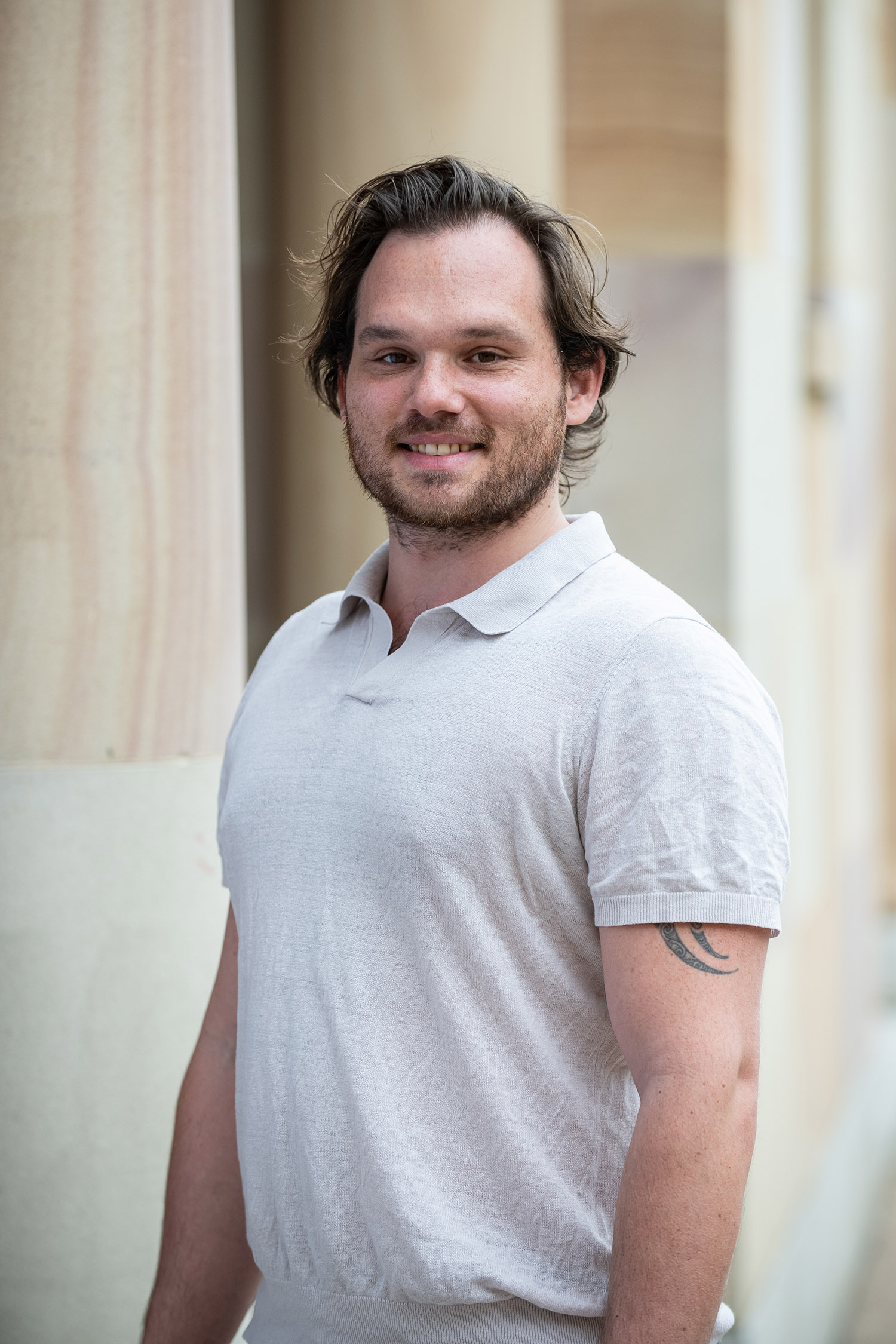Q&A with Shea Spierings
Shea Spierings is a Postdoctoral Research Fellow at the UQ Poche Centre and the School of Social Science.
This NAIDOC Week, we caught up with him to talk about his work and the advantages of an Indigenous perspective in research.
Where are you from and what is your cultural heritage background?
I am a Gangulu man, originally from Central Queensland. My country is west of Rockhampton, close to Woorabinda. My mother’s parents were Dutch migrants that came to Australia following the end of the World War II.
Tell us more about your appointment
I have recently begun a Postdoctoral Research Fellowship here at UQ. I am located jointly between the Poche Centre for Indigenous health and the School of Social Sciences. My research background focused on the socio-political determinants of Aboriginal health, with my PhD looking at the impact of over-incarceration on Aboriginal men. I will be continuing my research into Aboriginal men’s health and Aboriginal masculinity. I was also awarded a research grant to investigate the effectiveness of COVID-19 health messaging in Aboriginal and Torres Strait Islander communities, with findings due at the end of 2021.
What are your credentials/experience? Are you a UQ alumni?
I have previously served on the UQ Young Alumni Advisory Board and I also undertook my undergraduate coursework and PhD Candidature here at UQ.
What inspired you to pursue a career in research?
I was inspired to continue my research journey after speaking with other Aboriginal health researchers, particularly Professor James Ward who is now the Director of the UQ Poche Centre for Indigenous Health. I have always wanted to generate impact and benefit for community through my research and have been lucky enough to meet and be supported by likeminded Indigenous and non-Indigenous researchers who conduct meaningful research.
What do you hope to achieve for Indigenous communities through your research?
I want to ensure that the needs of Aboriginal people, particularly Aboriginal men, are being met within clinical settings and that health care professionals are aware of the realities of Aboriginal people. We need to think critically and constructively about what it means for us to be the most incarcerated people on the planet and how that effects the health and wellbeing of entire communities.
What are the advantages of having someone with an Indigenous perspective in research?
As Indigenous researchers we bring community connections, and cultural literacy and knowledge to our work that enables us to perceive and address research problems which a non-Indigenous researcher may never even identify.
What does this year’s NAIDOC theme mean to you?
This year’s NAIDOC theme speaks to Aboriginal and Torres Strait Islander peoples unique cultural relationships with places across Australia, but even more specifically to the pain experienced by the Puutu Kunti Kurrama and Pinikura peoples because of the desecration of Juukan Gorge.

